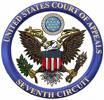Does the Threat of Future Copyright Infringement Amount to Irreparable Harm?
 Chief among the bundle of rights one obtains in property ownership is the right to exclude others from the use and enjoyment of that property. This “sole and despotic dominion” that an individual commands over their property is placed in danger, of course, when the property becomes subject to the wants and needs of others. Absent the owner’s consent (as in the case of licensing) or operation of law (as with adverse possession), a property owner would be able to bring an action for trespass for such intrusions.
Chief among the bundle of rights one obtains in property ownership is the right to exclude others from the use and enjoyment of that property. This “sole and despotic dominion” that an individual commands over their property is placed in danger, of course, when the property becomes subject to the wants and needs of others. Absent the owner’s consent (as in the case of licensing) or operation of law (as with adverse possession), a property owner would be able to bring an action for trespass for such intrusions.
A judge holding a defendant liable for trespass perhaps carries the vision of plaintiffs having their rights vindicated, but cases do not end at liability. The judge must also determine whether further remedies beyond damages are appropriate, including whether a permanent injunction should issue. Such is a weighty decision touches upon an extraordinary remedy: a court order that a defendant must cease and desist its illegal activity or face punishment for contempt. That being said, in many property cases, a court order only issuing damages would effectuate a judicial licensing of the behavior. With that result, the incentives are adjusted such that the right to exclude does not rest with the plaintiff; instead, it is determined only by the extent to which the defendant is willing and able to engage in the trespassing behavior. As such, the courts have presumptively treated infringement of property rights as worthy of injunctive relief.
That has also been the rule in copyright infringement cases for the last few decades.

 The Supreme Court was not the only court wrestling this week with the admissibility of crime-lab evidence. A day after the Justices heard
The Supreme Court was not the only court wrestling this week with the admissibility of crime-lab evidence. A day after the Justices heard  The Seventh Circuit had only one new opinion in a criminal case this week, and it is not one in which the court broke new legal ground. In
The Seventh Circuit had only one new opinion in a criminal case this week, and it is not one in which the court broke new legal ground. In